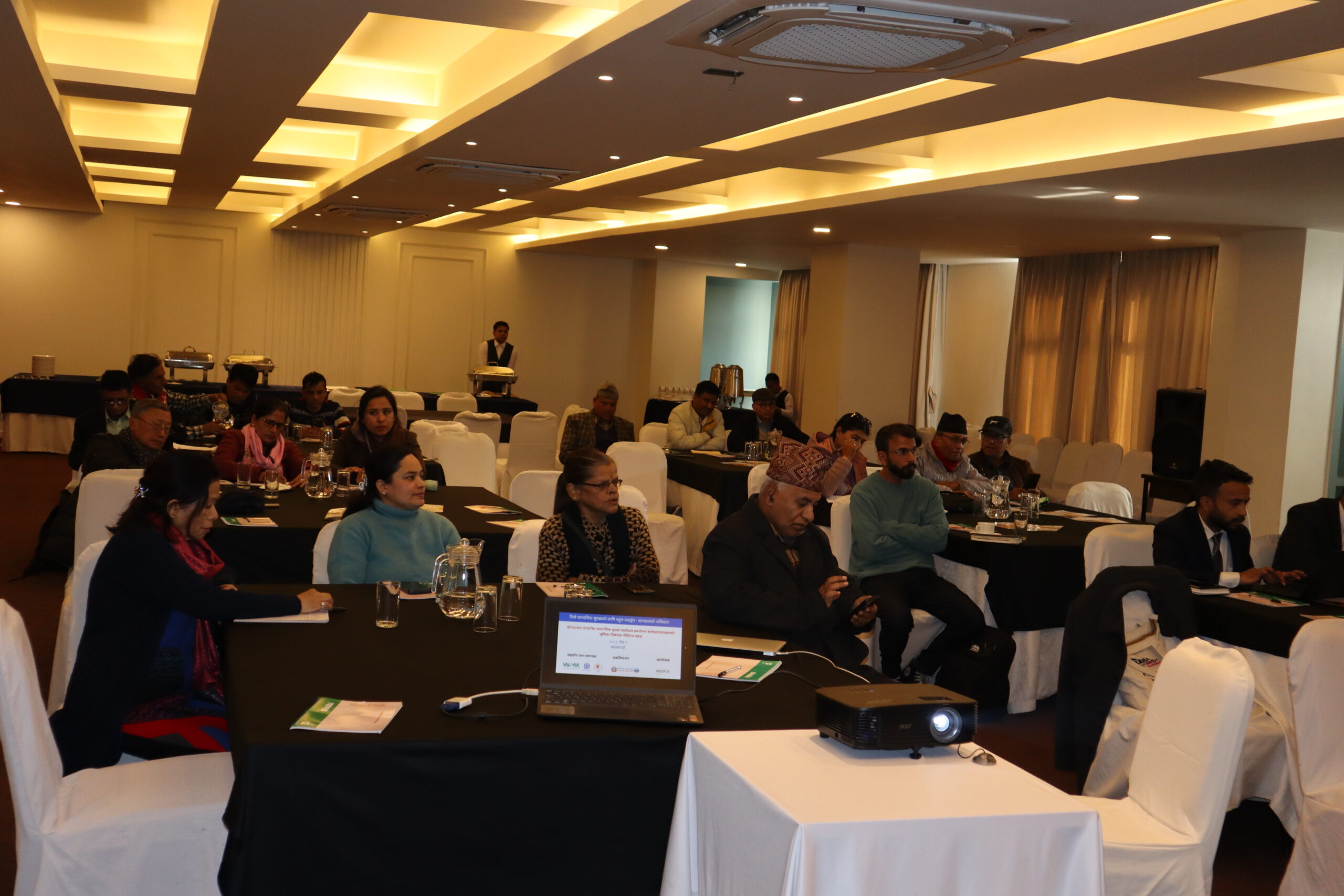
Posted On: 26th December, 2024
Policy Dialogue on Contributory Social Protection: Highlights Challenges and Opportunities
16 December 2024, Kathmandu – A Policy Dialogue on the role of stakeholders in
contributory social protection was successfully organized in Kathmandu, focusing on challenges
faced by informal workers in accessing the Social Security Fund (SSF). The event brought
together key stakeholders, including representatives from civil society organizations (CSOs),
trade unions, development partners, and government agencies.
The event, chaired by Mr. Tilottam Paudel, Chairperson of the Social Protection Civil Society
Network (SPCSN), was moderated by Mr. Rajendra Chaulagain, Program Coordinator of
SPCSN. Organized by INSP!R Nepal in collaboration with ITUC-NAC and SPCSN, and in
coordination with the SSF, the dialogue received financial support from We Social Movement
(WSM).
In his welcome speech, Mr. Paudel emphasized the critical need for an inclusive social protection
system, urging the SSF to ensure universal coverage regardless of caste, culture, gender, or
financial status.
Mr. Laxman Sharma from the General Federation of Nepalese Trade Unions (GFONT) presented
insights on the SSF’s “Mission 2 Million” initiative, aimed at increasing participation in the
social security system. He highlighted the financial challenges faced by informal workers in
joining the SSF and called for inclusive policies to address these barriers.
Mr. Dinesh Sharma from the SSF outlined key schemes under the SSF, including pension
systems and social security coverage, designed to enhance workers’ quality of life, especially
post-retirement. He stressed the importance of multi-stakeholder collaboration to ensure the
sustainability and accessibility of the SSF for informal sector workers.
The dialogue also explored the contributions of CSOs and trade unions in advocating for
expanded social protection coverage. Participants discussed strategies to promote access to social
protection for marginalized and informal workers. The event was attended by 35 participants,
including 20 male and 15 female representatives, ensuring diverse and balanced perspectives.
Concluding remarks were delivered by Mr. Kabi Raj Adhikary, Executive Director of SSF, who
underscored the importance of sustained collaboration among stakeholders to enhance the reach
and efficiency of social protection systems in Nepal.
The event underscored the importance of contributory-based social protection and called for
ongoing dialogues among stakeholders to build an inclusive and sustainable system for all
workers in Nepal.